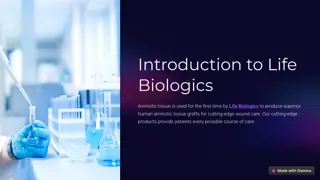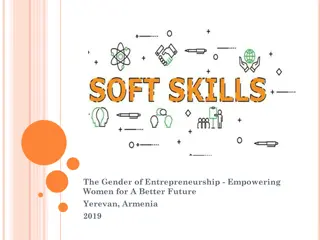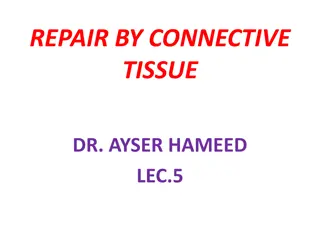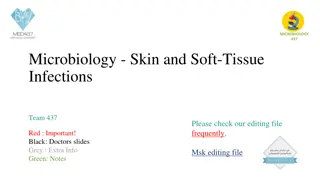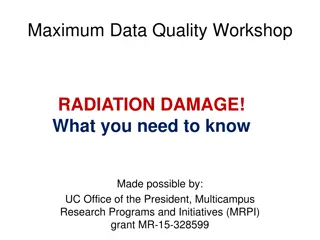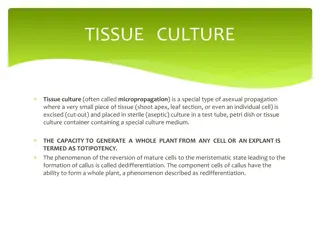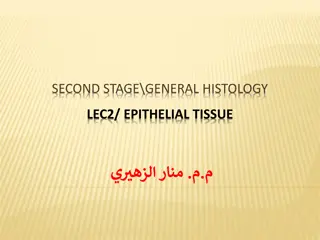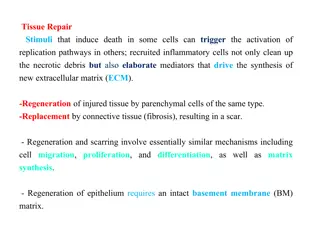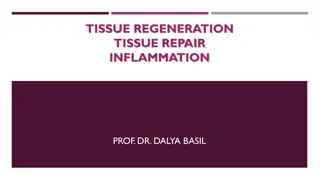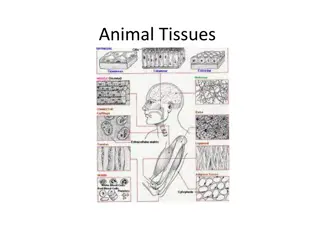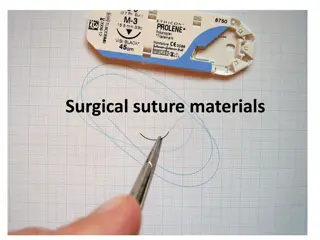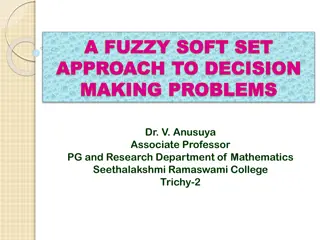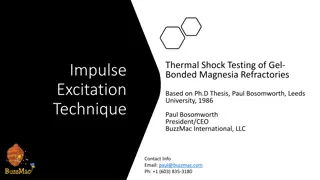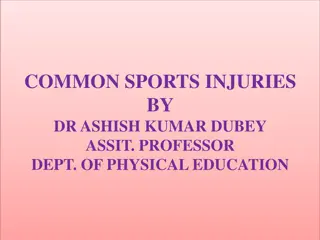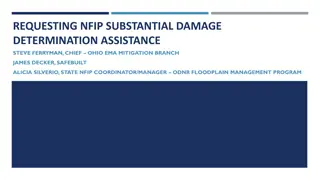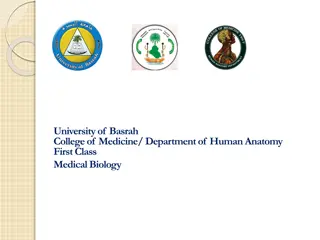www-systemskills-in-20-important-soft-skills-for-freshers-
While hard skills are important for performing the tasks of a job, soft skills are essential for succeeding in the workplace. They help you build relationships, solve problems, and work as a team. Whether you\u2019re just starting your career or looking to move up the ladder, honing your soft skills
2 views • 3 slides
Challenges in Wind Damage Assessment Scales
The European Severe Storms Laboratory and the International Fujita Scale have been pivotal in evaluating wind damage from tornado events. However, issues such as vague damage descriptions, lack of scientific backing for wind-damage relationships, and applicability to different regions have posed cha
4 views • 25 slides
Advancing Healthcare: Potential of Advanced Amniotic Tissue by Life Biologics
Life Biologics is at the forefront of using amniotic tissue to develop premium human amniotic tissue grafts for advanced wound care. Our innovative products offer patients a comprehensive range of treatment options. Life Biologics' advanced skin substitutes provide a revolutionary solution for both
0 views • 5 slides
Unveiling the Power of Soft Skills in Professional Success
Soft skills play a crucial role in enabling individuals to interact effectively and achieve their goals. The types of soft skills, including communication, leadership, influencing, interpersonal, and personal skills, highlight the diverse abilities needed to navigate today's dynamic work environment
0 views • 12 slides
Exploring Symbolism and Connections in "Tissue" by Imtiaz Dharker
This analysis delves into the symbolism present in Imtiaz Dharker's poem "Tissue," drawing connections between paper, human skin, and architecture. The poem reflects on the fragility of human power through the metaphor of tissue and explores the intricate layers that make up an individual's identity
0 views • 23 slides
Understanding Plant Tissue Culture: Methods and Requirements
Plant tissue culture involves the in-vitro culture of plant explants under aseptic conditions, covering cell, organ, and suspension cultures. This process, pioneered by German botanist Gottlieb Haberlandt, relies on the totipotency of plant cells. Key requirements include laboratory organization, su
0 views • 18 slides
Understanding Repair by Connective Tissue in Healing Processes
Healing or repair by connective tissue occurs in response to severe or chronic tissue injuries, leading to the replacement of nonregenerated cells with connective tissue or scar formation. This process involves the induction of fibroblast and endothelial cell proliferation, granulation tissue format
2 views • 26 slides
Understanding Lightning Damage Prevention
Lightning strikes cannot be stopped, but their damage can be mitigated by redirecting the energy. This presentation explores the four basic types of lightning damage - physical, secondary effect, electromagnetic effect, and damage by ground reference potential. Learn about the dangers of lightning s
0 views • 8 slides
Exploring Soft Skills Through Literature: A Path to Personal Development
Soft skills encompass a blend of personality traits, communication proficiency, and positive attitudes that set individuals apart. Originating in the US Army in 1972, soft skills include time management, teamwork, and confidence. Developing soft skills helps individuals excel in problem-solving, tea
0 views • 19 slides
Understanding Skin and Soft Tissue Infections: A Comprehensive Overview
Skin and soft tissue infections are common and can vary in severity. Recognizing the types, causes, and treatment options is crucial. Learn about the anatomical structure, bacterial involvement, diagnostic procedures, and management approaches in this detailed guide.
3 views • 20 slides
Enhancing Soft Skills: Learning Objectives, Quizzes, and Discussions
Explore the world of soft skills with defined objectives, quizzes, and engaging discussions. Learn to identify, evaluate, and rate soft skills through practical scenarios. Enhance your communication, problem-solving, and interpersonal skills in various workplace situations. Dive into self-improvemen
0 views • 13 slides
Understanding H&E Staining in Histology
H&E staining, a widely used histological technique, involves staining cell nuclei blue and cytoplasmic components pink to aid in tissue structure analysis. This method provides essential insights into normal and pathological tissue changes, assisting in diagnoses and further testing decisions. The p
0 views • 7 slides
Understanding Radiation Damage in Crystallography
Explore the impact of radiation damage on crystallography, focusing on dose proportional to photons per area rather than time or heat. Learn about MGy, radiation damage world records, crystal lifetime based on flux and dose, and self-calibrated damage limits. Discover insights from various studies a
0 views • 71 slides
Understanding Plant Tissue Culture: Techniques and Applications
Plant tissue culture involves maintaining and growing plant cells, tissues, or organs in artificial mediums under controlled conditions. It allows the regeneration of whole plants from small plant parts or cells. Hormones like auxins, cytokinins, and gibberellins are used in the process. Proper envi
3 views • 5 slides
Soft Heap and Soft Sequence Heaps: Properties and Applications
Explore the properties and applications of Soft Heap and Soft Sequence Heaps, discussing how corruption handling and selection functions are optimized in these data structures. The concept of car-pooling and the simplification of heap operations are highlighted, along with references to relevant res
1 views • 10 slides
Understanding Tissue Culture and Explant Selection in Plant Micropropagation
Tissue culture, or micropropagation, involves propagating plants from small tissue pieces in sterile culture. The process of dedifferentiation and redifferentiation allows for the regeneration of whole plants from individual cells or explants. Explants, selected from meristematic tissue, develop cal
0 views • 47 slides
Understanding Epithelial Tissue in General Histology
Epithelial tissue is a crucial type of tissue in the human body, performing functions like protection, absorption, secretion, and sensation detection. This tissue is composed of cells with minimal extracellular matrix and plays a vital role in various bodily processes. Learn about the classification
0 views • 47 slides
Understanding Tissue Repair Mechanisms: Regeneration and Fibrosis
Tissue repair involves complex mechanisms like regeneration by parenchymal cells or fibrosis leading to scar formation. Inflammatory cells play a crucial role in tissue repair, along with processes like ECM synthesis and cell migration. Different types of cells in the body have varying regenerative
0 views • 20 slides
Tissue Regeneration, Repair, and Inflammation Explained
Tissue regeneration and repair processes involve either regeneration of cells or connective tissue repair, depending on the type of cells injured. In cases where regeneration is not possible, healing occurs through the formation of scar tissue. The healing process aims to restore the structural cont
0 views • 40 slides
Understanding Tissue Repair: Regeneration and Fibrosis Mechanisms
Tissue repair involves two primary mechanisms: regeneration, where some tissues can replace damaged cells, and fibrosis, where scar tissue forms if regeneration is not possible. Cell proliferation, growth factors, and cell population control play key roles in the restoration of tissue architecture a
0 views • 15 slides
Understanding the Human Tissue Act 2004 and DNA Analysis
The Human Tissue Act 2004 regulates the removal, storage, and use of tissue and organs from both living and deceased individuals in England, Wales, and Northern Ireland. The Human Tissue Authority (HTA) oversees the implementation of this act, ensuring safe and ethical use of human tissue. Consent i
0 views • 20 slides
Understanding Animal Tissues: Epithelial, Muscle, Nerve, and Connective Tissues
Explore the four general categories of animal tissue - epithelial, muscle, nerve, and connective tissues. Learn about the traits, classification, examples, and functions of each type of tissue. From the tightly packed cells of epithelial tissue to the excitable nature of muscle tissue, delve into th
1 views • 22 slides
Tools and Procedures for Radiation Damage Modeling and Intercomparison of Experiments
Calculation and comparison of radiation damage under different irradiation conditions to assess the impact on materials. Various factors affecting damage dose are considered, including atomic displacement, PKAspectrum calculation, simulation of irradiation processes, and identification of impurities
0 views • 6 slides
Soft Skills Training Program Evaluation at an Indian Garment Firm
This study evaluates the impact of the P.A.C.E. program, focusing on soft skills training at an Indian ready-made garments firm. The research explores the inculcation and productivity-enhancing effects of soft skills in the workplace, questioning the profitability of general training provided by fir
0 views • 29 slides
Understanding Surgical Suture Materials and Techniques
Surgical sutures play a crucial role in wound repair by providing support and hemostasis to healing tissue. An ideal suture should meet specific criteria for handling, reaction in tissue, bacterial growth inhibition, knot security, and more. Factors like suture size, flexibility, and surface charact
0 views • 24 slides
Understanding Different Types of Fractures and Their Characteristics
Explore various types of fractures such as traumatic, pathologic, compressive, and more through detailed medical images and authentic reports. Learn about the severity of soft tissue damage, classifications by renowned professionals, and the significance of assessing soft tissue injuries. Delve deep
0 views • 28 slides
Understanding Fuzzy Soft Set Approach to Decision Making Problems
Real-life problems often involve imprecise data, requiring mathematical principles like fuzzy set theory. Dr. V. Anusuya explores the application of fuzzy soft sets in decision making scenarios, discussing their role in handling uncertainties and approximations. The introduction covers various theor
0 views • 16 slides
Understanding Birth Injuries in Newborns
Birth injuries in newborns can result from various factors during the birthing process, such as soft tissue injuries and head trauma. Soft tissue injuries like facial abrasions and scleral hemorrhage may occur due to causes like dystocia and forceps delivery. Nursing care involves assessing and reas
0 views • 19 slides
Thermal Shock Testing of Gel-Bonded Magnesia Refractories
Study conducted by Paul Bosomworth at Leeds University in 1986 aimed to reduce mechanical damage after thermal shock in magnesia refractories used in sliding gates. The research focused on using gel-binders and achieving optimum grain packing to enhance thermal stress damage resistance. The study al
0 views • 7 slides
Understanding Common Sports Injuries by Dr. Ashish Kumar Dubey
Dr. Ashish Kumar Dubey, Assistant Professor in the Department of Physical Education, categorizes common sports injuries into soft tissue injuries, bone injuries, and joint injuries. Soft tissue injuries include sprains, strains, contusions, abrasions, lacerations, and incisions. Sprains are ligament
0 views • 7 slides
MSI Offers Professional Water Damage Restoration Services
There are different categories of water that can cause different degrees of damage Work with MSI specialists today for professional water damage restoration . \/\/ \/services\/water-damage-restoration
0 views • 13 slides
NFIP Substantial Damage Determination Assistance and Post-Damage Community Responsibilities
Substantial Damage Assessment is crucial in determining if properties in flood hazard areas have sustained damage exceeding 50% of their market value, requiring compliance with local floodplain management regulations. Communities participating in the NFIP play a vital role in regulating development,
0 views • 22 slides
Flooded Home_ Here’s Why You Need Water Damage Restoration Right Away
Need water damage restoration? Act fast to prevent mold, structural damage, and costly repairs. Learn why timely restoration is crucial and how to choose the right service provider.\n\nKnow more: \/\/ \/san-diego-water-damage-restoration\/
0 views • 8 slides
Understanding Epithelial Tissue in Human Anatomy: A Comprehensive Overview
Epithelial tissue is a vital component of the human body, serving as a protective barrier and interface with the external environment. This tissue type, along with other essential tissues, plays a crucial role in the development and function of organs. Learn about the structure, function, and signif
0 views • 22 slides
Understanding Basic Histology and Tissue Types
Explore histology, tissues, and types of tissues including epithelial, connective, muscle, and nerve tissues. Learn about tissue characteristics, differences, and functions, as well as details on specific tissue types like cardiac muscle, bone tissue, skeletal muscle, and smooth muscle. Delve into e
0 views • 74 slides
Regulation of Human Tissue and DNA Analysis under HTA 2004
The Human Tissue Act 2004 regulates the removal, storage, and use of tissues from deceased and living individuals. The Human Tissue Authority oversees the implementation of this act and provides guidance on safe and ethical use of human tissue. The act covers bodily and relevant material and emphasi
0 views • 20 slides
Understanding the Four Basic Types of Tissue
Explore the four basic types of tissue in the human body: connective tissue, epithelial tissue, muscle tissue, and nervous tissue. Learn about their functions and characteristics to gain a deeper understanding of the body's structure and functions after a lecture session.
0 views • 7 slides
Best Professional Water Damage Restoration Services
There are different categories of water that can cause different degrees of damage Work with MSI specialists today for professional water damage restoration. \/\/ \/services\/water-damage-restoration
0 views • 16 slides
Water Damage Repair Eastvale | 24/7 Emergency Water Damage Services
Professional water damage repair in Eastvale. We offer 24\/7 emergency services to restore your property quickly. Call now for fast, reliable water damage restoration.\nknow more- \/\/ \/eastvale-water-damage
0 views • 5 slides
Expert Water Damage Repair in Poway | Fast & Reliable Service
Need water damage repair in Poway? Our expert team provides fast and reliable solutions for water damage restoration, ensuring your home is safe and dry. Contact us today for a free consultation!\nknow more- \/\/ \/poway-water-damage
0 views • 5 slides


